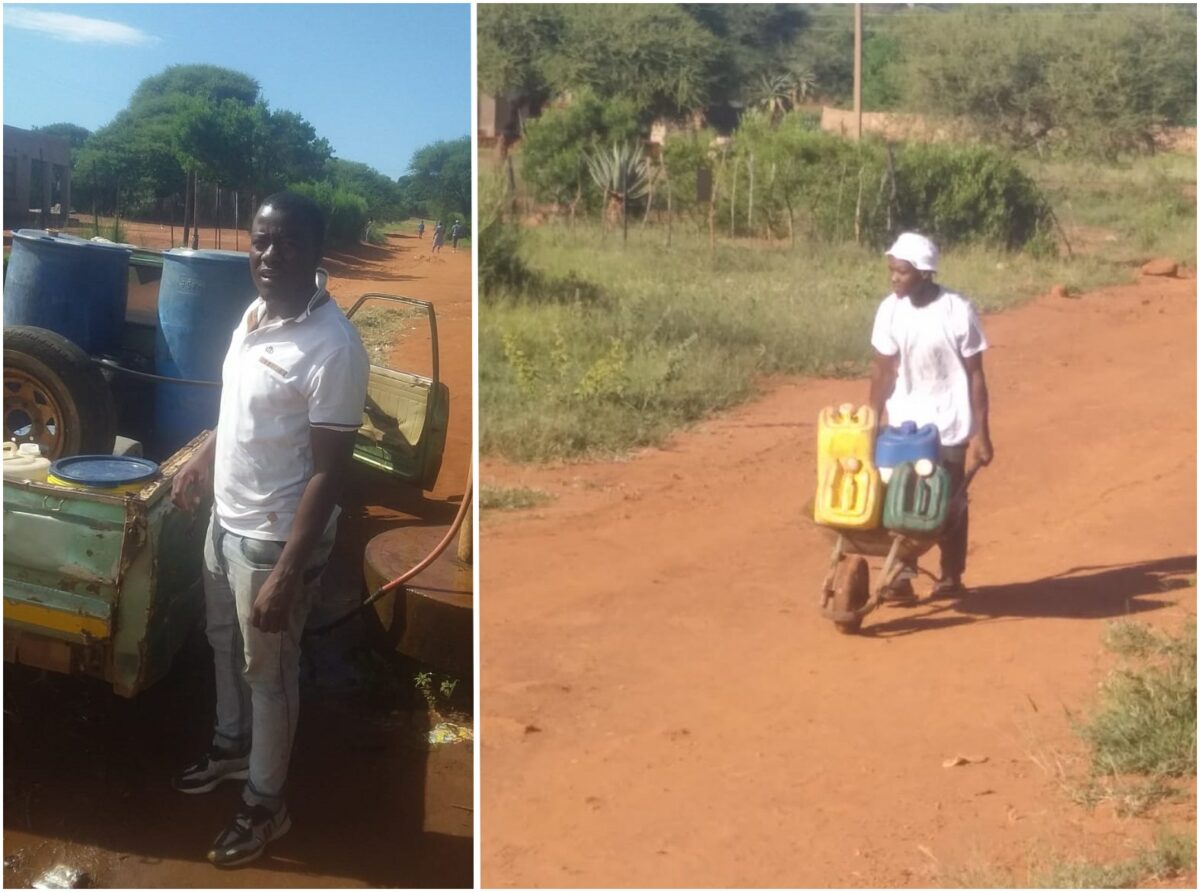The residents of Mokgola village near Zeerust are without water, a situation that has persisted since 2006. This is despite multiple projects worth billions of rands to fix the water crisis in the North West village.
There have been many peaceful and violent community protests regarding water shortage but very little intervention from the authorities since 2006.
The villagers, approximately 12000 people, buy water from those who own bakkies and sell water. They also depend on other villagers who own private boreholes and can sell 25 liters of water for R5.
Ngaka Modiri Molema District Municipality (NMMDM) is responsible for the maintenance and supply of water in the village since 2005.
A local employee from NMMDM, who could not be named for fear of victimisation, told Newsi that problems started a year after the municipality became the water authority in that village. “Years after 1994 we started a water system which was run by the community, it ran smoothly and there was always water available in every household and we did maintenance because we were trained on a regular basis,” the employee said.
“The water crisis began as soon as NMMDM got involved in 2005, they could not manage to supply water for at least 1 year. I think the biggest mistake was to politicize water instead of treating water as a human right issue. We started to see external contractors coming into the village to do the shoddy and incompetent work, something that I have never seen in my life as a result of money (tenders),” the employee exclaimed.
Champ Lekagane (30) owns a bakkie and sells water to the community who are in dire need, he claims to make more than R1000 per day. A single load that contains about 600 litres costs a villager a tune of R140.
“It is really devastating to witness this crisis especially first-hand as I work with water in the village. I have been helping the villagers for over 7 years, and I can see that it is tough as the majority of the people I am helping are pensioners. These are old people who cannot even push a wheelbarrow who have to use the money they do not have just to get water,” Lekagane said.
Like many black communities, the villagers depend on social security (grants) for survival, so this means that they have to take the money they have to buy water.
Emily Rantao (87) is a pensioner who has been buying water since 2008, she survives only on her R1900 she receives from government. She says that she spends a whopping R1000 on water, and can barely survive on the remaining R900 because she has to look after her family of 6 (grandchildren).
“Why is this government doing this to us? Apartheid hated us but they never denied us water, why should we ask for water? My whole grant is used on water, no one can survive without water. I am spending more than half of my grant just to buy water, we were doing just fine with water rendered by the tribal authority,” Rantao said.
The South African Human Rights Commission (SAHRC), after receiving and investigating a complaint from the village, is monitoring the recommendations it made in 2019.
The water shortage situation still persists in the village even after the SAHRC intervention.
According to the Department of Water and Sanitation’s spokesperson, Sputnik Ratau, R11 426 590 was funded to Mokgola and Driefontein villages to solve water crisis in the 2014/15 financial year.
“To address the medium to long term, the department has received a MIG (Municipal Infrastructure Grant) technical report from NMMDM to the tune of R76,4 million aimed at implementing a sustainable bulk water supply to the area using latest engineering solutions. The technical report was evaluated by Department’s Chief Engineer and his technical team and is now awaiting amendments by the Engineering Consultant appointed by NMMDM for final analysis and recommendations. The Water Service Authority plans to implement the project as soon as they receive the approval letter in the next financial year,” Ratau said.

